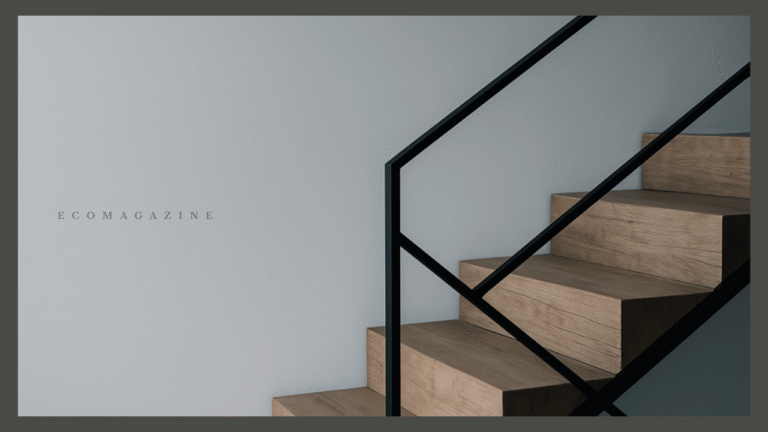Embracing eco-friendly practices in home renovations is becoming increasingly important. By choosing sustainable materials for your staircase, you can enhance your home’s aesthetics while reducing its environmental impact. This approach not only supports a healthier planet but also offers long-lasting beauty for your interiors.
Many homeowners are seeking ways to incorporate sustainability into their living spaces. Eco-friendly staircase renovation is a practical and stylish option that offers numerous benefits. By integrating green materials and methods, you contribute to environmental conservation while enjoying modern designs. This approach reduces waste and promotes the use of renewable resources, aligning your home with sustainable living practices.
Sustainable materials for staircase designs
Sustainable materials are chosen for their minimal environmental impact throughout their lifecycle. These materials are often renewable, recycled, or responsibly sourced to ensure a smaller carbon footprint. For staircases, options like bamboo, reclaimed wood, and recycled metal are popular for their durability and eco-friendly properties. Bamboo grows quickly and requires fewer resources than traditional hardwoods, making it an excellent choice for environmentally conscious homeowners.
Reclaimed wood offers a rustic charm and unique character to any staircase while reducing the demand for new lumber. This material repurposes old wood from previous constructions or furniture, giving it a new life in your home. Recycled metal is another innovative option, providing strength and a modern appeal without depleting natural resources. Incorporating these materials into your staircase design supports sustainability and adds distinctive beauty to your home.
Choosing sustainable materials does not mean compromising on quality or style. These materials often offer superior durability compared to conventional options. Whether you prefer the warm tones of reclaimed wood or the sleek finish of recycled metal, these eco-friendly choices enable you to create a unique staircase that complements your home’s aesthetic while prioritising sustainability.
Benefits of eco-friendly staircases
Opting for sustainable staircase designs offers numerous environmental advantages. By using materials like bamboo and reclaimed wood, you help conserve natural resources and reduce the overall carbon footprint of your renovation project. These materials require less energy for production and transportation compared to traditional options, contributing to a cleaner planet.
Economically, investing in sustainable designs can lead to significant long-term savings. Durable materials like recycled metal often require less maintenance and have a longer lifespan than their non-eco counterparts. This longevity translates to fewer replacements over time, reducing costs associated with frequent repairs or replacements.
Aesthetically, eco-friendly staircases offer a unique appeal that enhances your home’s interior design. The natural textures and colours of materials like bamboo or reclaimed wood create a warm and inviting atmosphere. These features not only add character but also increase the value of your home by appealing to potential buyers who prioritise sustainability in their purchasing decisions.
Implementing sustainable staircase designs
When planning an eco-friendly staircase renovation, selecting the right materials is crucial. Consider factors such as your home’s style, existing decor, and personal preferences when choosing between bamboo, reclaimed wood, or recycled metal. Consulting with experts in sustainable architecture or interior design can provide valuable insights into how these materials can be best utilised in your space.
Functionality should also be considered when designing an eco-friendly staircase. Ensure that the chosen materials complement the structural requirements of your home while maintaining aesthetic harmony with other elements of your interior design. Whether you’re working with contractors or taking a DIY approach, collaboration with professionals familiar with sustainable practices ensures successful implementation.
If opting for a DIY project, research thoroughly to understand the best techniques for handling these materials safely and efficiently. Online tutorials and workshops are excellent resources for learning about eco-friendly construction methods that align with modern design trends.
Modern trends in sustainable staircase designs
Sustainable staircase designs can easily be integrated into contemporary styles by combining innovative materials with current trends. Minimalism remains popular, characterised by clean lines and open spaces that highlight natural textures like those found in bamboo or reclaimed wood staircases.
Another trend involves incorporating mixed materials to create visually striking contrasts within a single design framework – for instance, pairing sleek recycled metal railings with warm wooden steps creates an eye-catching blend of industrial chicness against organic warmth.
The rising popularity of biophilic design encourages incorporating nature-inspired elements indoors. Staircases designed from naturally derived components support this concept beautifully by bringing aspects of the outdoors inside seamlessly through thoughtful material selection and layout planning, enhancing user experience within interior spaces while promoting ecological balance.


